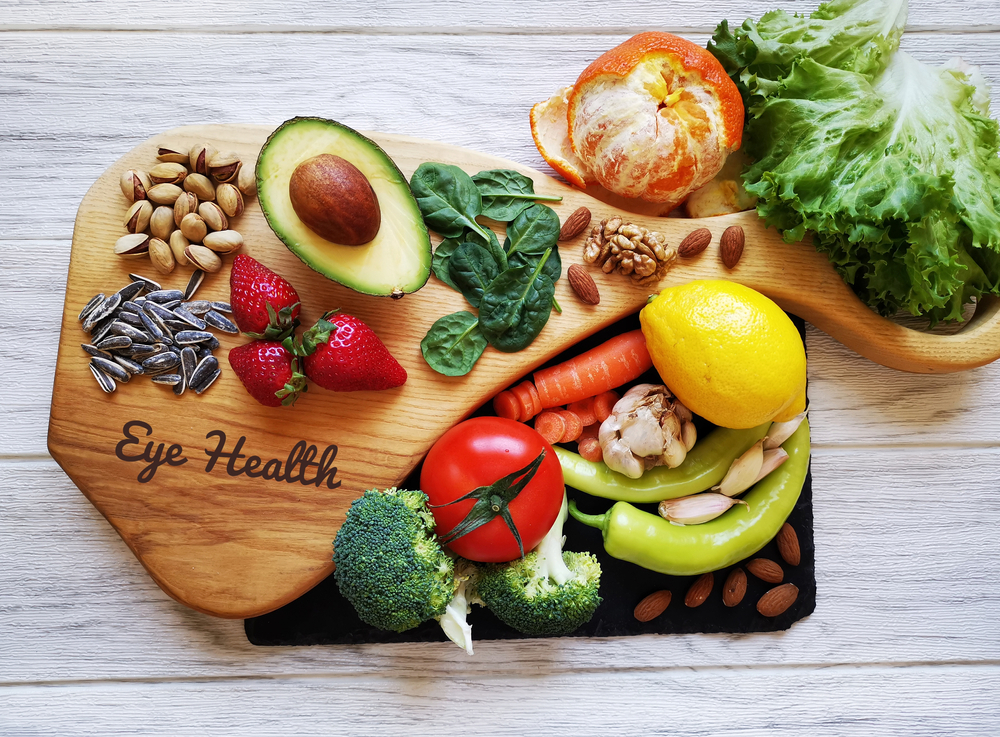
Your vision impacts nearly every aspect of your life, from reading and driving to enjoying the beauty of a Texas sunset. While genetics and age play a role in eye health, the choices you make every day can greatly influence how well your eyes function over time. At West Texas Eyecare, we emphasize the importance of combining a nutrient-rich diet with routine eye exams to protect and preserve your vision.
Why Nutrition Matters for Your Eyes
The eyes are highly sensitive organs, constantly exposed to light, oxidative stress, and environmental factors such as dust and UV rays. Nutrients act as a natural defense system by strengthening your retina, protecting the macula, and supporting the tear film that keeps your eyes comfortable. Without adequate nutrition, the risk of developing common eye conditions such as macular degeneration, cataracts, and dry eye syndrome increases significantly.
Nutrients That Support Eye Health
• Vitamin A: Vitamin A is essential for night vision and maintaining a healthy cornea. Foods rich in vitamin A include carrots, sweet potatoes, and dark leafy greens.
• Omega-3 Fatty Acids: Omega-3s help reduce dry eye symptoms and support retinal health. Cold-water fish such as salmon, tuna, and sardines are excellent sources. For vegetarians, flaxseeds and walnuts are good alternatives.
• Lutein & Zeaxanthin: These antioxidants filter harmful blue light and protect against macular degeneration. You can find them in spinach, kale, and egg yolks.
• Vitamin C: Vitamin C supports healthy blood vessels in your eyes and may lower the risk of cataracts. Citrus fruits, strawberries, and bell peppers are loaded with this nutrient.
• Vitamin E: Vitamin E helps guard your eyes against free radical damage. Nuts, seeds, and avocados are great sources to include in your diet.
• Zinc: Zinc is vital for carrying vitamin A to the retina and supporting good night vision. Oysters, beef, and pumpkin seeds are all zinc-rich options.
Supplements That Support Eye Health
Even with a healthy diet, it can be challenging to consume enough of these nutrients daily. Eye-specific supplements can help fill the gap:
• AREDS2 Formula: A research-backed blend of vitamins C and E, lutein, zeaxanthin, zinc, and copper shown to reduce the risk of advanced AMD.
• Fish Oil or Algal Oil Supplements: Ideal for those who don’t eat enough fatty fish, helping reduce dry eye symptoms.
• Multivitamins with Eye Support: May include additional nutrients such as selenium or beta-carotene.
Before starting any supplements, consult with our optometrist to ensure they are appropriate for your age, health, and eye condition.
Lifestyle Habits That Complement Good Nutrition
Nutrition is just one piece of the puzzle. Your daily habits also influence eye health:
• Stay hydrated: Water helps maintain tear production and prevent dry eyes.
• Wear sunglasses: Protect your eyes from harmful UV rays, even on cloudy days.
• Limit screen time: Take breaks to reduce digital eye strain.
• Quit smoking: Smoking accelerates cataract formation and increases AMD risk.
• Maintain a healthy weight: Obesity is linked to diabetes, which can cause serious vision problems.
The Importance of Regular Eye Exams
While diet and supplements strengthen your eye health, they are not a substitute for professional care. Many eye conditions develop silently, without noticeable symptoms in the early stages. Routine comprehensive eye exams at West Texas Eyecare allow us to detect potential problems early and give you personalized recommendations for protecting your vision.
Take Charge of Your Eye Health Today
The right diet and supplements can make a big difference in protecting your vision, but they’re most effective when combined with professional eye care. By eating foods rich in vitamins, antioxidants, and omega-3s, you’re investing in your vision today and for the future.
Schedule a comprehensive eye exam with West Texas Eyecare and get personalized guidance on nutrition and supplements to keep your vision healthy. Visit our office in Pecos, Texas, or call (432) 445-3662 to book an appointment today.






